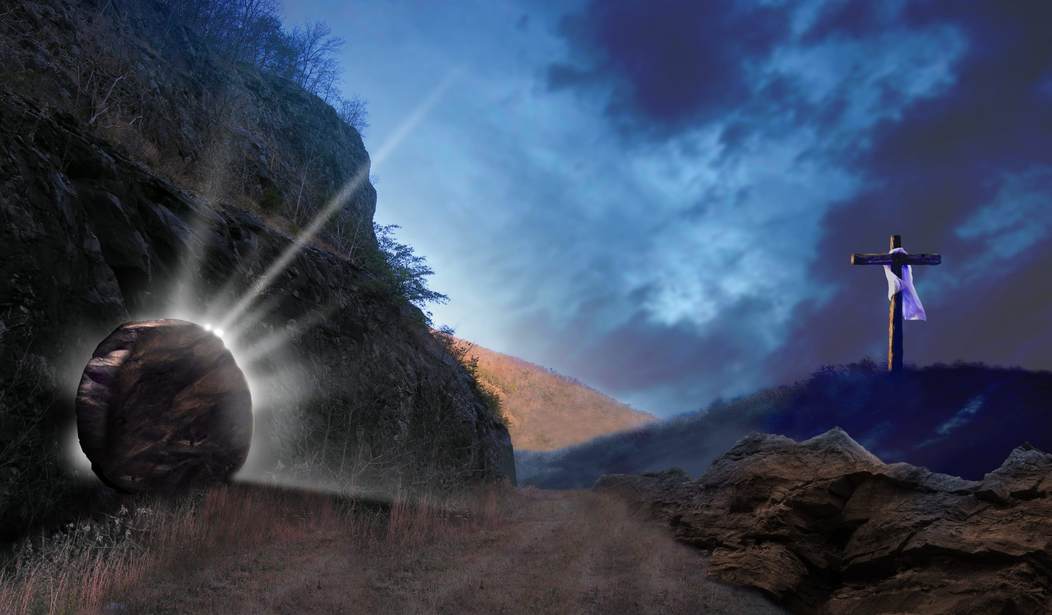In 1 Corinthians 15:14, the Apostle Paul makes the astounding claim that, “if [Jesus] Christ has not been raised, then our preaching is in vain and your faith is in vain.” And he’s correct; if Jesus is still dead, then Christians are wasting their time. This fact makes it even more odd that there doesn’t appear to be a cultural war on Easter the way that there is on Christmas.
In an excellent interview for Religion News Service, historian Dr. Gary Bowler speaks with Jonathan Merritt about why there isn’t a war on Easter like there seems to be on Christmas.
I encourage you to read the interview, it’s well worth your time. I’m going to provide some excerpts to whet your appetite and some brief commentary on what I believe is a topic of vital importance for Christians.
Dr. Gary Bowler is an historian whose focus is religion, although he has a wide variety of interests. Receiving his PhD. from Kings College in London, Bowler currently teaches at the University of Manitoba. While his interests are varied, much of his writing is about Christmas. A recent book by Bowler is titled Christmas in the Crosshairs: Two-Thousand Years of Denouncing and Defending the World’s Most Celebrated Holiday. His status as a respected historian and his emphasis on Christmas make him uniquely gifted to answer Jonathan Merritt’s questions.
Starting off the interview with a question about the War on Christmas, Merritt references President Trump. Without equivocation, Dr. Bowler answers in the affirmative that there is and has been a continuous War on Christmas by society. He then adds that Trump “is referring to a particular front in that conflict: the debate over what public space is to be given in the USA to religion. Thus, his emphasis on the ability to say ‘Merry Christmas’ as opposed to ‘Happy Holidays’ or to send a Christmas card instead of one mentioning ‘Season’s Greetings.'”
Dr. Bowler then inserts the important note: “The war, however, is much older than this aspect and contains many more points of contention.”
And this is where the meat of the interview begins.
Briefly interacting with the history of Christmas, Dr. Bowler clears up some confusion about the supposed pagan influences on the holiday. He then provides a summary of the history of the War on Christmas.
After Merritt asks, “which holiday [Christmas or Easter] has been more important to Christian communities?” Dr. Bowler replies, “Theologically speaking, Easter is the most important date. The Resurrection outranks the Incarnation, Ascension, etc.”
To be clear, while I understand and, hence, agree with that claim, I’m not a big fan of separating the Incarnation from the Resurrection and Ascension. Theologically, it’s better if we view the entire life and ministry of Jesus while on this earth as a singular event. Eliminate any one of the events, and the gospel falls apart.
That being said, Dr. Bowler makes a good point, which raises the question as to why society hasn’t attacked Easter with the same ferociousness with which they’ve attacked Christmas.
After briefly acknowledging that some groups are opposed to Easter, Dr. Bowler explains:
Christmas is celebrated much more publicly and intensely than Easter, at least in North America and is marked by many who are not overtly religious. It is the biggest phenomenon on the planet, dwarfing any rock festival, sports tournament or other holiday. It occupies probably 10 percent of our lives in preparing for it, celebrating it, and paying for it.
That makes Christmas the obvious target of those who oppose any place for religion in the public sphere or those who oppose Christianity specifically. In those times when Christianity was suppressed such as the French Revolution, Nazi Germany, the USSR or the Mao era in China, Easter was victimized in the same way as Christmas.
One final note that I believe is important and challenges much of the current narratives surrounding Christian holidays. Merritt directly asked Bowler, “Don’t Easter and Christmas both have pagan roots?”
In response, Bowler confidently asserted, “Not at all. Nothing in the Nativity or the Resurrection is pagan. They are the central core of Christianity. There are a number of add-ons or accretions that have a pre-Christian origin. For example, the English name ‘Easter,’ eggs, bunnies, pooping logs, or gifts.”
This Easter season, even though the secular world seems mostly silent about this most holy of holidays, Christians should remind ourselves of the importance of Jesus’ resurrection. Dr. Bowler’s interview is a great way to help reorient ourselves to the importance of Easter.









Join the conversation as a VIP Member